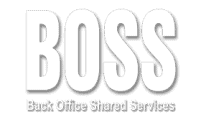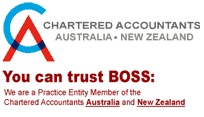Cloud computing is experiencing rapid growth in the field of IT worldwide. It has been a key area of investment for IT departments in recent years and is expected to remain a top priority in 2015. The accounting profession is also recognizing the benefits of transitioning to the Cloud with many firms, regardless of size, realising the potential benefits.
Benefits of the Cloud
Accessibility
Furthermore, cloud computing offers scalability and flexibility for businesses. As your company grows, you can easily increase your storage space and computing power without having to invest in expensive hardware. This means that you can adapt to changes in demand without any hassle.
Additionally, cloud computing enhances collaboration among employees. With cloud-based tools like Google Docs or Microsoft Office 365, multiple team members can work on the same document in real-time, regardless of their location. This boosts productivity and efficiency within the company.
Overall, cloud computing offers numerous benefits for businesses of all sizes. It allows for increased accessibility, scalability, flexibility, and collaboration, ultimately leading to improved efficiency and cost-effectiveness. It is definitely a technology that every business should consider implementing in order to stay competitive in today’s fast-paced digital world.
As well as the benefits within the firm itself outsourcing compliance work overseas can be effectively managed with relative ease.
Reduced cost
One of the most frequently cited advantages of migrating to cloud services is the potential for significant cost savings for organisations. This reduction in expenses arises from the consolidation of server maintenance, software updates, and licensing fees into a single subscription model. Furthermore, by operating in the cloud, companies can minimise infrastructure and hardware expenditures while virtually eliminating server failures. Additionally, costs associated with system administration and other operational overheads are typically included within the scope of the cloud subscription service.
Scalable
Cloud computing offers scalability, allowing your business to seamlessly adapt to growth or significant fluctuations in workload—especially during peak periods such as tax season. Unlike many traditional applications that may experience slowdowns or necessitate updates and hardware upgrades in response to increased demand, cloud-based solutions are designed to efficiently manage these changes.
Reduced Data Entry
Data entry is often a time-consuming process that many accounting firms are all too familiar with. However, cloud applications significantly reduce the volume of data entry required. Cloud accounting software providers commonly integrate with banks to offer real-time feeds of client transactions, thereby automating the labour-intensive manual entry and upload of bank and credit card transactions. This not only enhances efficiency but also mitigates the potential for human error in data entry tasks.
Real Time Data
Cloud accounting software provides real-time data updates, ensuring that all changes and transactions are reflected instantly. This capability eliminates concerns regarding file currency, as there is no longer a need to wait for clerks or assistants to input the latest information or to manage cumbersome CSV files. Additionally, client services experience significant improvements; with access to current information at your fingertips, you can promptly address client inquiries with comprehensive and accurate responses.
Concerns of Accounting in the Cloud
Data Security
The predominant concern among individuals considering cloud computing is security. Questions often arise regarding the protection of sensitive data: Will my information remain secure? Who has access to it? Where is it stored? What measures are implemented to ensure its safety? Such inquiries can understandably cause hesitation in migrating to cloud solutions; however, the reality is that security risks may be overstated.
It is essential for anyone evaluating cloud options to conduct a comprehensive examination of the security policies of potential providers, just as one would assess the security protocols associated with traditional on-site servers. For further insights into cloud security, we invite you to read our detailed article.
Connectivity
Most Australian accounting firms are situated in areas adequately serviced by ADSL, enabling them to operate effectively. However, it is important to exercise caution when considering serviced office environments that accommodate multiple companies. The shared internet connection may experience high demand from other users, potentially affecting performance. We advise conducting a thorough assessment of your upload and download speeds during mid-morning and mid-afternoon on two separate days using a reliable tool such as www.speedtest.net. It is crucial to focus on the slowest speed recorded during these tests for an accurate evaluation.
To facilitate the upload of substantial volumes of data to the cloud, it is advisable to have an upload speed close to 1Mb/s. While it is possible to operate cloud software with lower speeds, please be aware that file uploads may require a considerable amount of time. Therefore, you may want to consider upgrading your plan through your Internet Service Provider (ISP) or that of your serviced office. If you are uncertain about your internet speed in relation to your specific business requirements, we recommend consulting with your cloud service provider for guidance tailored to your needs.

What to Look for in a Provider?
For accounting firms, Software as a Service (SaaS) represents the most significant advantage of Cloud technology. While platform and server hosting options are also available in the Cloud, many firms discover that SaaS solutions sufficiently address their operational requirements. The effective utilisation of Cloud benefits largely hinges on selecting an appropriate service provider that aligns with your specific needs. SaaS offerings encompass a wide range of functionalities, from fundamental accounting tasks to more advanced features such as integration with clients’ banking systems, automated transaction updates, batching processes, and more.
Prominent accounting SaaS providers include Xero, Saasu, and QuickBooks Online. Additionally, MYOB offers a cloud-based solution known as MYOB LiveAccounts, while Reckon’s online platform is referred to as Reckon Accounts Hosted. It is worth noting that numerous lesser-known providers are available in the market, each presenting their own advantages and disadvantages.
To effectively transition from your existing accounting software to a solution provided by your Cloud host, it is essential that the software encompasses fundamental functionalities such as both accrual and cash-based accounting, streamlined reconciliation processes, and a comprehensive chart of accounts.
Additionally, to fully leverage the benefits of the Cloud experience, it is advisable to seek out providers that offer integrated features within their software packages. These may include automated bank feeds, invoice emailing capabilities, payroll functions, automated tax lodgment services, cheque deposit slips, and advanced customizable reporting options.
It is important to recognize that your specific requirements will directly align with those of your clients. Therefore, if pertinent to your operations, be sure to verify whether the software includes support for multi-currency transactions, sales tax integration, split transaction handling capabilities, and client portal access.
We recommend that you explore the available add-ons compatible with your chosen provider, as well as assess any differences in functionality among their mobile applications.
Other Considerations of the Cloud
Data security policy
It is essential to thoroughly review the company’s data security policy prior to transferring your data to their servers. It is important to understand the following aspects: who has access to the data, the process by which access is granted, the number of security levels implemented, protocols in place for breach incidents, as well as physical storage locations and onsite access permissions.
Multiple data warehouses in different locales
Verify that the vendor you select operates its services across multiple zones and utilises various data warehouses. This approach guarantees continuity in your software services, minimising the risk of downtime should an issue arise with a specific host zone or data centre.
Customer support
Customer support is an essential component of a positive Cloud experience. Given that any issues encountered will need to be addressed through customer support, it is imperative to ensure the presence of an efficient and qualified support team poised to assist you. Prior to making any decisions, this can be readily evaluated by consulting online user reviews, which often provide valuable insights into the quality of customer support experiences offered by various companies..
Intuitive and user friendly interface
Finally, it is essential that the user interface be designed intuitively, facilitating easy understanding and navigation. Most cloud-based accounting software adopts a dashboard style, where key overviews and controls are prominently displayed on the main screen, with additional functionalities accessible through simple clicks. Prior to migration, it is advisable to conduct a trial of both the software and its backend setup to verify that the design and functionality align well with your requirements and can be easily navigated.


